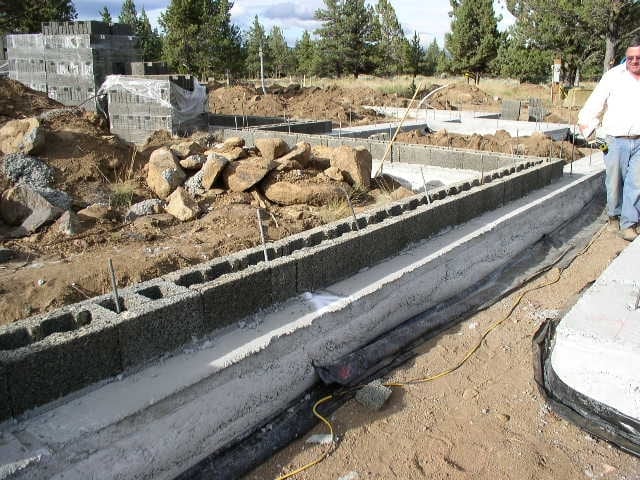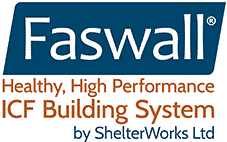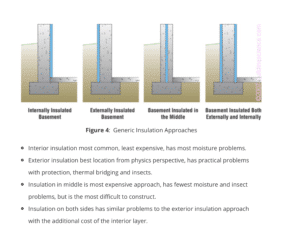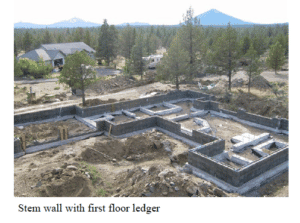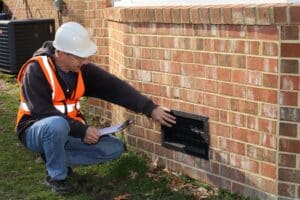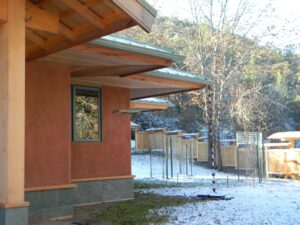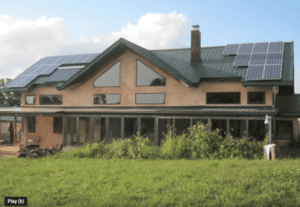Insulated Concrete Forms for Basements and Foundations
Faswall Blocks are Vapor Permeable for a Mold-Free Basement
Use Faswall for:
Stem Walls
Full ICF Foundations
Basement on Slab Construction
Below Grade Basement
Below Grade Living Space
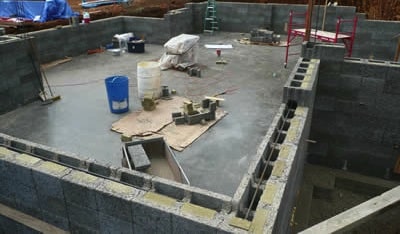
Natural ICF vs Poured Concrete Basement
Natural ICF vs Poured Concrete Basement
Why Use Faswall for Basements Instead of Conventionally-Poured Concrete
Vapor Permeability
Faswall ICF eliminates the damp/dank smell and feel of a traditional basement. Wood fiber cement is vapor permeable and provides an air quality that is fresh, a temperature that is moderated, and a relative humidity that is constant. The indoor environment does not support fungal growth and spores.
Easy Interior Finishing Options
Faswall blocks create a finished wall surface on the inside, which does not need to be firred out and insulated (unlike a poured concrete basement). The Faswall ICF surface can be left as is and finish trimmed if desired, thereby creating an attractive surface. Or, the surface can be plastered on or dry-walled directly if desired. Another beautiful option is to order Faswall block, whereby the interior surface of the block is surface-trimmed to expose the wood fiber chips. With conventional concrete, you have no other option other than to frame, insulate, and drywall it, which adds to the cost, time, and hassle of building. And let’s not forget that do-it-yourselfers can stack Faswall blocks with ease in the initial construction process!
Environmentally-Friendly
Faswall block is one of the greenest building products on the market. Not only does it provide a solid, insulated block foundation, but it also supports sustainable construction practices and environmental responsibility.
Competitive Pricing
A Faswal ICF-built basement will cost approximately the same as building a poured concrete wall basement, assuming that interior wall was to be finished (ie. firred out and insulated). Faswall ICF is no more expensive than erecting and striping concrete forms, and then going through all the stages of stick framing against that concrete wall and insulating it to the level of insulation already available by building with the Faswall ICF.
You’d be surprised at the various types of homes and commercial buildings that can be built with Faswall. Check out some of the recent projects.
Photo Gallery
I Want To Get Started
Request Your Free Download “Get Started” Package:
Includes: Design Ideas, Product Data Sheet, Block Pricing, Technical and Installation Info, Engineering Details
“We did a lot of research on various green building systems but settled on Faswall. We couldn’t have done it without you!”
-Ted and Donna Havecheck
Customer Uses Faswall ICF for Basement Walls in a Totally Recycled Home
Highly Insulating, Energy Saving, High Performance Built in
Vapor Permeable for No Basement Smell!
Many customers are choosing to build their basement with Faswall® for a living space below grade with no “basement smell” and excellent air quality.
Faswall® eliminates moisture and mold problems by regulating the relative humidity or moisture content of a room. The cement wood-fiber content of Faswall is vapor-permeable and free-draining by nature, giving you improved air quality.
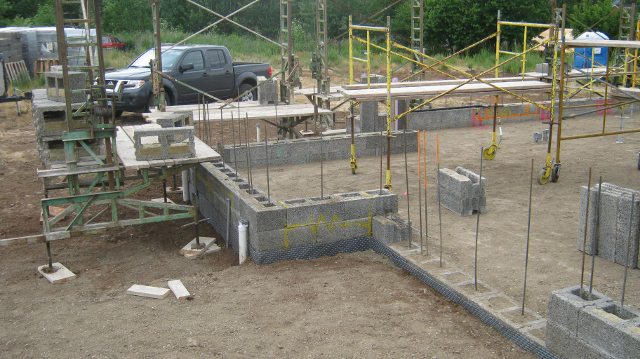
Structure, High Insulation Value, and Ready to Finish Surface in ONE Applied Layer
- ICF Foundation R-Value: Up to R 25.5 without any added insulation layer – High Thermal Mass for Energy Savings!
- Qualifies for LEED points
- Installed cost comparable with poured wall or cmu insulated and finished to the same level.
- Outside uses conventional waterproofing techniques
- Cuts with standard circular saws and reciprocating saws.
- Inside can be direct plastered, drywalled, or simply painted for finished basements.
- Builders crew installs, no need for special subs.
- Vapor Permeability
